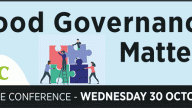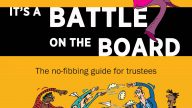How to be the perfect Trustee
What does being a good trustee involve?
If you’ve ever applied for a Trustee position, you’re likely familiar with the emphasis on time commitment during the recruitment interview. You’ll hear about the number of Board meetings each year and some additional committee meetings you’re expected to attend. However, if that’s all the panel shares, run for the hills. As a Trustee, you should be prepared for much more than just showing up to meetings.
Being a good Trustee involves much more than sitting around the Board table to give your opinion at the meetings. Some charities are honest and open about what is expected of their trustees so that successful candidates take on their role with their eyes wide open. These are the charities to gravitate towards because you can be sure that their trustees understand what is required of them right from the start. Trustees with realistic expectations about their role can expect to spend time on lots of things in addition to meetings. Here are four of the most important:
Read the Board Papers
Set time aside to read your Board papers before the meetings. This sounds obvious, but I have lost count of the number of times I have seen Trustees ask a question at a meeting to be told that the answer is right there in the report they are supposed to have read. And don’t just read to be informed. Read to understand, to digest and to triangulate. Make connections between different agenda items and different reports. Ask questions and seek to gain assurance from the information in front of you. Set aside enough time to read, understand and contemplate the information you are given.
External Orientation
It is a given that all Trustees are aware of what is going on within their organisation – at least at a strategic level. But the best Trustees proactively search for external data and trends that might impact the work of their charity. They are up to date on social, economic and political trends, as well as mission related developments. The best Trustees bring this data into the Board discussions so that they can understand how the world outside could present threats and opportunities for their charity.
Build Relationships
Good Trustees get to know their fellow Board members and senior staff because they want to foster a team spirit and care about their colleagues. They take time to understand not just their own role, but the roles of others (the Chair, Treasurer, CEO and senior staff). It is important to understand the challenges that colleagues face and the responsibilities they carry. Only then can a Trustee approach their role as a team player and a compassionate leader. By building relationships with colleagues outside meetings Trustees will sense when they need support or a listening ear. Trustees must be approachable in their roles as critical friend and objective adviser. This only happens when they make time to build relationships.
Never Stop Learning
Just because you are a Trustee at the top table doesn’t mean you know everything. Even Trustees need to constantly learn and develop. There are some excellent training courses and resources for Trustees. And because the governance landscape is always changing, you’ll need to stay abreast of new developments, best practice and legislation. Too many Trustees think that their appointment to the Board is the end of their development process, when for many it’s just the beginning. Seek feedback about your contribution, your behaviours and the value you bring to the Board. Then act on the areas for improvement by finding ways to learn and grow into an effective Trustee. Be humble in your self-assessment and stay hungry for knowledge and best practice.
Understanding good governance takes time and effort. Whether you are attending a DSC governance workshop or conference, meeting your CEO for coffee, visiting one of your charity’s projects or reading about local economic trends, you will need to allocate time outside the core Board and Committee meetings. Meetings are just the tip of the Trustee governance iceberg. The real substance sits underneath the waterline. It is not always visible, but it is essential if you want to be an effective Trustee.


